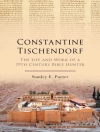In Zona Gale’s poignant novel ‘White Bread, ‘ readers are drawn into the intricate tapestry of small-town life in early 20th-century America. Gale’s literary style is characterized by rich, evocative language and a keen psychological insight into her characters. Through a blend of realism and an underlying critique of societal norms, she explores themes of gender roles, socioeconomic class, and familial relationships. The narrative revolves around a community’s struggle with change and the tension between tradition and modernity, effectively illustrating the complexities of American identity during a transformative era. Zona Gale, an influential writer and social activist, was born in Portage, Wisconsin, in 1874. Her firsthand experiences as a woman navigating the constraints of her time undoubtedly shaped her creative vision. Gale was not only one of the first female members of the American Academy of Arts and Letters but also served as a voice for women’s rights and labor movements. Her deep understanding of human emotions and societal dynamics informs the rich character development and authentic dialogue found within ‘White Bread.’ ‘White Bread’ is a must-read for those interested in early American literature and the exploration of women’s roles in society. Gale’s vivid storytelling and profound social commentary invite readers to reflect on the historical context of her time while resonating with contemporary themes of identity and belonging. This book will appeal to anyone who appreciates finely crafted narratives that interrogate the fabric of community and individual existence.
Об авторе
Zona Gale (1874–1938) was a distinguished American novelist and playwright who made significant contributions to early 20th-century literature. Born in Portage, Wisconsin, Gale’s Midwestern roots deeply influenced her literary voice. She was the first woman to win the Pulitzer Prize for Drama in 1921 with her play ‘Miss Lulu Bett, ‘ adapting it from her own novel. With an education from the University of Wisconsin and later studies at the New York School of Philosophy, she honed her craft and worldview, which often centered around feminist themes and the exploration of small-town life. Her works often critique traditional gender norms and advocate for societal reform. Gale’s narrative style is noted for its intimate portrayal of her characters’ interior lives and its reflection on personal freedom and fulfillment. ‘White Bread’ is an exemplification of her literary precision in portraying the nuances of domestic life. The issues Gale tackled in her writing remain relevant, and her legacy persists in the evolution of feminist literature and social narrative. Her complete oeuvre includes more than 20 books and numerous short stories imbued with a sense of activism for both women’s rights and peace. Gale’s commitment to these causes was also evident in her personal life, as she engaged in social and political activism beyond the page.












